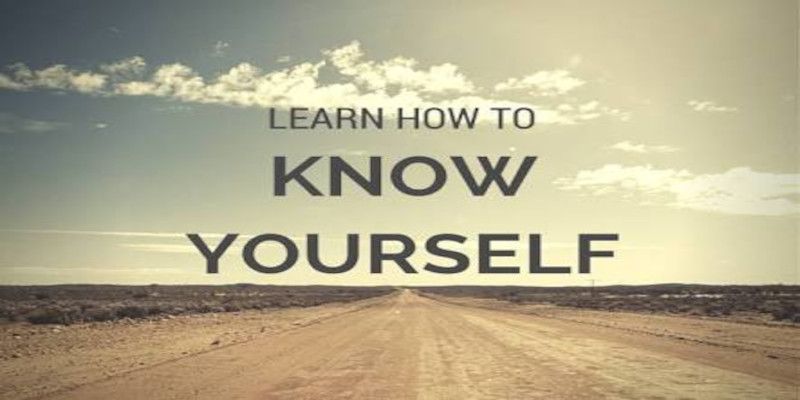Table of Contents
ToggleWe often put a huge emphasis on what other people think of us. Yet, that shouldn’t define our self-confidence.
It’s normal, and even healthy, that our self-worth is partially determined by the social roles we fulfill in our immediate social circle consisting of close friends and family. However, letting random, unknown, or negative people determine our self-esteem is not.
Let’s find out why other people shouldn’t determine our self-regard, and why we shouldn’t put too much importance on what those around us think about us.
Why we shouldn't let other people determine our self-worth

Every person is different
What qualities and traits another person regards as important and valuable might not be the same for you. Thus, other people’s subjective perceived value judgments over you should hold little, to no influence at all.
For example, some people value harmony first and foremost. And if you happen to be a disagreeable person and, thus, naturally engage in more conflicts than those around you because you feel there’s something essential to be said, then individuals prizing harmony might dislike you for it. That’s not a given, of course, as some people are extremely open-minded and tolerant of different perspectives.
But does this mean that just because you are disagreeable and are more likely to engage in conflict that you are worth less than agreeable people valuing harmony? NO. It just means that some people who value a certain trait or skill will be more inclined to think more highly of individuals possessing these same abilities or attributes.
Every person has their strengths and weaknesses

“If you judge a fish by its ability to climb a tree, it will live its whole life believing it’s stupid.”
This quote hits the nail right on its head. Everyone has their specific talents. And just because someone else has different gifts than you, or because it’s easier to see the natural ability in other people rather than in yourself, doesn’t make them any better than you.
Instead, the only person you should be comparing yourself to is yourself. Try to become a little better each day, and you’re well on your way to becoming the best possible version of yourself.
You can’t be liked by everyone

It’s impossible to be liked by everyone out there. Even if you tried to please all people in existence, you would still have haters based on the simple fact that you are trying to be a people pleaser.
It’s important to learn how to stop being a people pleaser early on in life because you can only meet the right folks if you know what you stand for.
The positive effect of other people’s positive judgment regarding our self-worth is fleeting compared to our own
It certainly feels good when our peers validate our sense of self-worth by showing their appreciation and love.
And while support from our close ones is certainly significant, an over-reliance on other people’s positive opinions for determining your self-esteem is not recommended as it is fleeting, and might even be prone to change.
However, establishing a more optimistic self-image due to working on our imperfections while simultaneously expanding our perks will last a lifetime. Furthermore, it is something everyone can do and rely on when the going gets tough. And make no mistake, sooner or later, things will get difficult.
Other people might lie to you

Other people shouldn’t determine your self-worth, since they might lie to you.
I’m not saying that everyone you meet or know will lie to you, at least not the people who are close to you, hopefully. But there are typically plenty of reasons why those around you might lie to you. A hidden agenda and personal benefit are among them.
Jealousy, hate, envy, Taking advantage of you, … The list goes on and on. The causes why others could lie to us are endless. Yet, the long-term effects of lying are devastating for the person exhibiting this toxic behavior, as well as for the individual who’s being lied to.
You give away your control and power
It has been proven that a sense of independence and capability are two key pieces for one’s sense of well-being.
Basing your self-regard on what others think about you takes away your power and sense of control over your own life, while simultaneously allowing other people to manipulate your existence by pulling the strings.
You know yourself the best

Those close to you might know you pretty well. But since a lot of our thoughts, feelings, and thus, our deepest secrets remain hidden from everyone but ourselves, there’s nobody out there who has the potential to know you as well as yourself. Granted, that is if you can be introspective and self-critical.
Others are judging you, and making decisions based on the objective and most certainly the subjective information they’ve been given access to. But they can never have as much data available as the person living with their feelings and thoughts for an entire lifetime.
It’s your life, live it the way you want to
Nobody has the right to control and decide how you should live your life. And if they think they do, then that’s an extremely arrogant claim to make.
Time is precious, so don’t waste your time trying to please others by living according to their rules and values. You should live it the way you want to since everyone is unique, and that means there’s no single best way of living.
Why your value is not determined by others

Your, and my value is not determined by others. At least not solely.
While it is significant what our loved ones think of us, it’s not important at all what those who don’t care, or know us think about our character.
Your value is decided by your actions, the roles you play in society, how you think about yourself, and finally, how those who care about you perceive your personality.
Why your self-worth should be determined by you

Your self-worth should be determined by you because ultimately, you decide what’s essential and purposeful to your existence.
That will be different for each individual, although some common meaningful goals typically include establishing a loving family, enjoying a fruitful career, and helping those around us.
Your goals should be based on what’s substantive to you personally, seeing as you will enjoy chasing, and feel good attaining those objectives.
Frequently Asked Questions (FAQ)
What does self-worth mean?

Self-worth, also called self-esteem and self-regard, refers to the subjective evaluation of ourselves. It involves all the affirmative and antagonistic feelings and thoughts about oneself.
A negative self-image can potentially be the result of a low amount of self-esteem.
Take note however that self-esteem should not be confused with self-efficacy. As the latter stands for the belief in your ability to succeed in a particular situation.
This means that a person can potentially have a low amount of self-esteem, yet score highly regarding self-efficacy.
What determines our self-worth?

- Our genes (personality traits)
- Our psychology (how we think about ourselves)
- Our environment (the roles we perform in our lives)
For the sake of keeping it relatively short, we’ve only been talking about the environmental aspect that partially determines our sense of self-worth.
This means our surroundings, such as the people around us, and the roles we consequently perform.
Why is self-worth important?

Self-esteem should be relatively steady and unchanging. Even though it can vary slightly, it shouldn’t change on a whim.
Some examples of positive self-worth include:
- Being resilient
- Feeling secure
- Strong character
- Good, deep relationships and connections with others
- Feeling motivated
- Determined
- Confident in your skills and capacity to finish tasks with success
- …
Examples of negative self-worth are:
- Sensitive
- Feeling vulnerable
- Weak character
- Poor, shallow relationships with those around you
- Unmotivated
- Unconfident in your abilities and capability to finish undertakings successfully
- …
Self-worth synonyms
Self-worth has many synonyms, such as:
- Self-esteem
- Self-regard
- Self-pride
- Ego
- Self-confidence
- Self-respect
- Self-love
- Self–assuredness
- Self-admiration
- Self-satisfaction
Although the wording is different, the meaning remains by and large the same. That’s why these words are regularly used interchangeably.
Conclusion

Our environment plays an important role in influencing our sense of self-worth.
Yet, other individuals should not be the deciding factor for deciding how we feel about ourselves.
At most, the people close to you, who genuinely want the best for you, should have some influence in deciding how you feel about yourself. Granted, that is if you have supportive, empathic friends and family members.
In short, live your life the way you want it to. And if you’re not happy with its current trajectory or with the folks surrounding you, change it. Life’s simply too short to waste it on people who don’t want the best for us.






1 thought on “Why other people shouldn’t determine your self-worth”
Comments are closed.